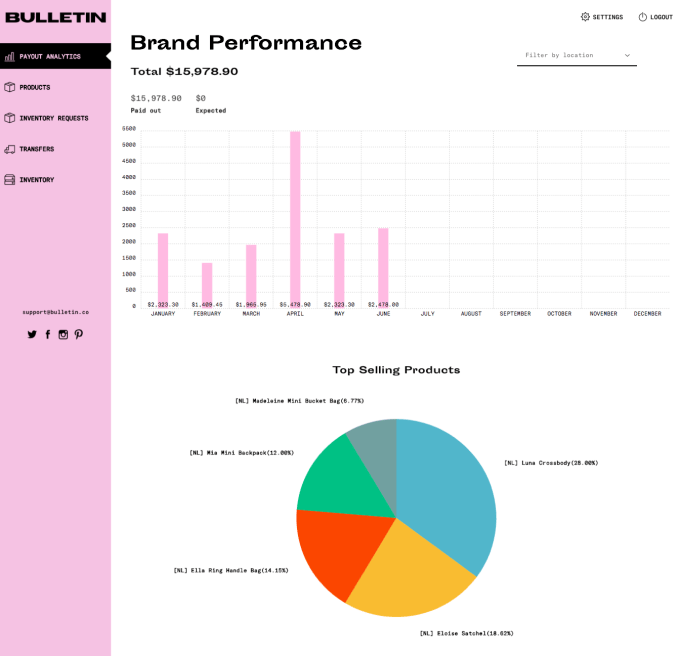If you visited a Bulletin store, or bought products off its website, COO Ali Kriegsmsan said you might “pigeonhole” the company as a “feminist apparel brand” — a place to buy T-shirts and accessories with fun, provocative political slogans.
And yes, that is part of what draws consumers into the stores. But Kriegsman and her co-founder Alana Branston have also laid out their broader vision for a more flexible, WeWork-style approach to brick-and-mortar retail, one where brands essentially rent out shelf space in Bulletin stores.
So brands that may have only sold online can experiment with physical store, while shoppers can purchase from a curated, constantly refreshed selection of brands and products.
“We’re building this more feminine retail company, but we are also part real estate company, and now, we are also part technology company,” Kriegsman said.
The “now” that she’s referring to is the launch of Bulletin Omni, a software platform that allows brands to apply to sell with Bulletin, manage their inventory and track their sales.
Bulletin has actually been working on something like this since I first talked to the team last year, but according to Maggie Braine, the company’s director of product and brand experience, Omni only just reached the point where the company ready to roll it out to all of the 150 brands it works with. She said that without it, the company has mostly relied on “emails, phone calls, and a very, very large Google Doc” to manage the process.

Braine gave me a quick walkthrough of Omni, showing me how a brand could, with just a few clicks, add a new product to its offerings in a given store, confirm once that product has actually arrived and then see how each product is selling in each store.
That’s “unheard of” in traditional retail, she said, where “there’s very little transparency” once goods are purchased by retailers. With Omni, Braine said the goal is to give brands the same kinds of data around physical purchases that they have access to when they promote and sell their products through online channels.
She also said the team plans to introduce ways for in-store staff to offer feedback to the brands — like whether a product isn’t selling because it’s too expensive.
Kriegsman said that if the software is does well enough, she could imagine Bulletin becoming “a retail software destination,” where other companies buy the software to manage non-Bulletin stores.
But even if that doesn’t happen, she predicted that Omni will allow Bulletin itself to epxnad more quickly. The company currently has three New York City stores — one in SoHo, one in Williamsburg and a recently-opened lcoation near Union Square — with plans to open in additional cities later this year.
from Startups – TechCrunch https://ift.tt/2ui5f3e
via IFTTT
No comments:
Post a Comment
Thank You for your Participation